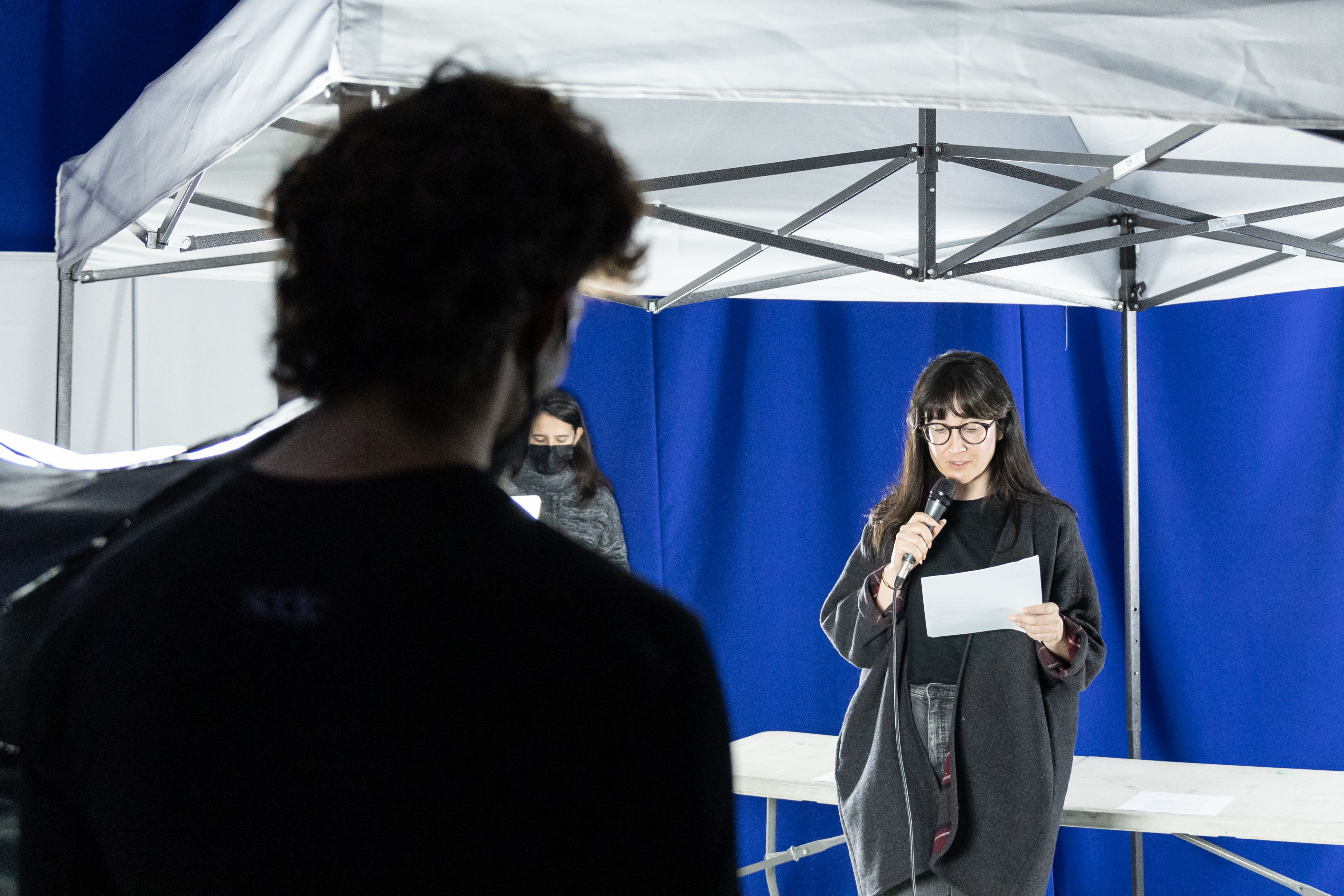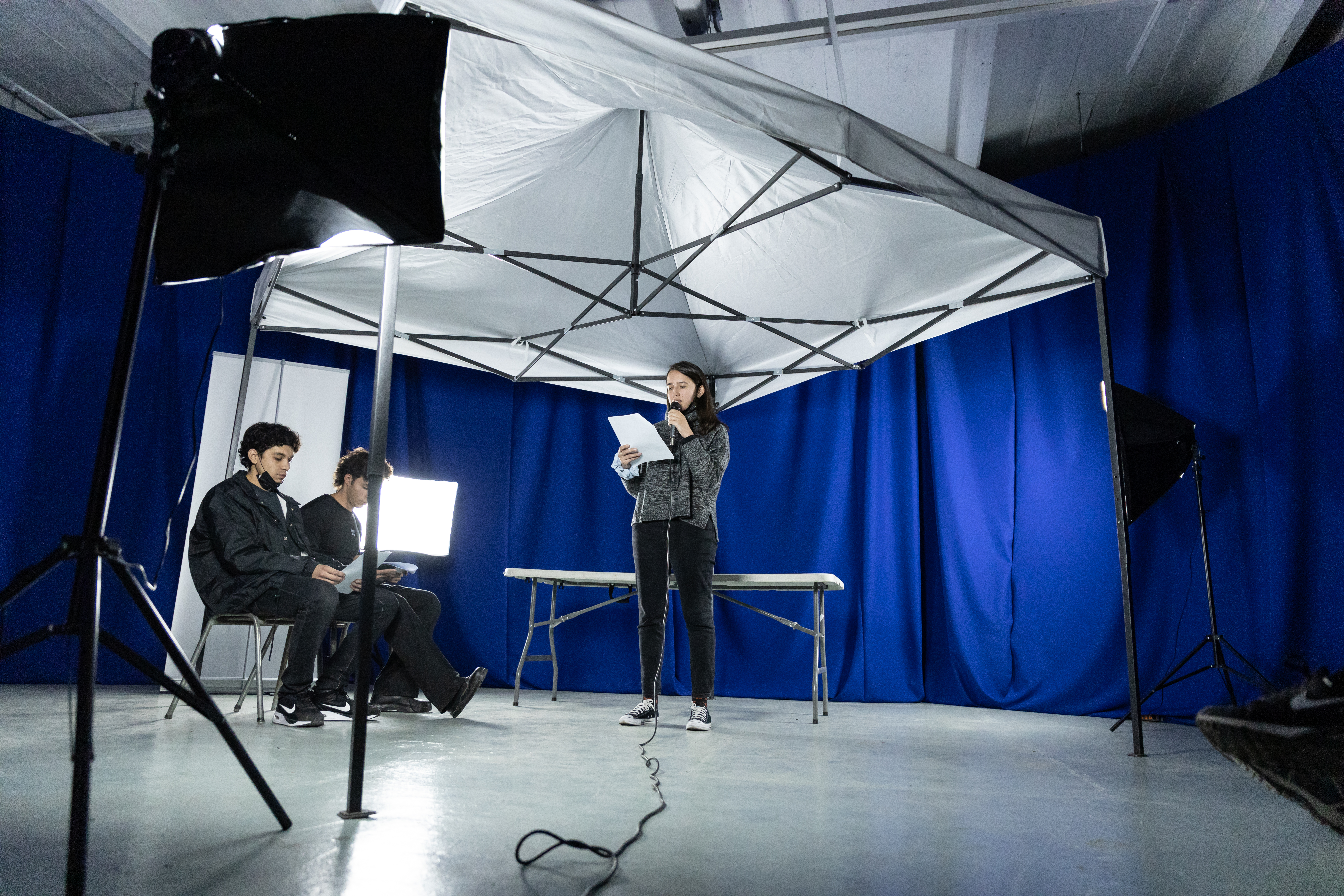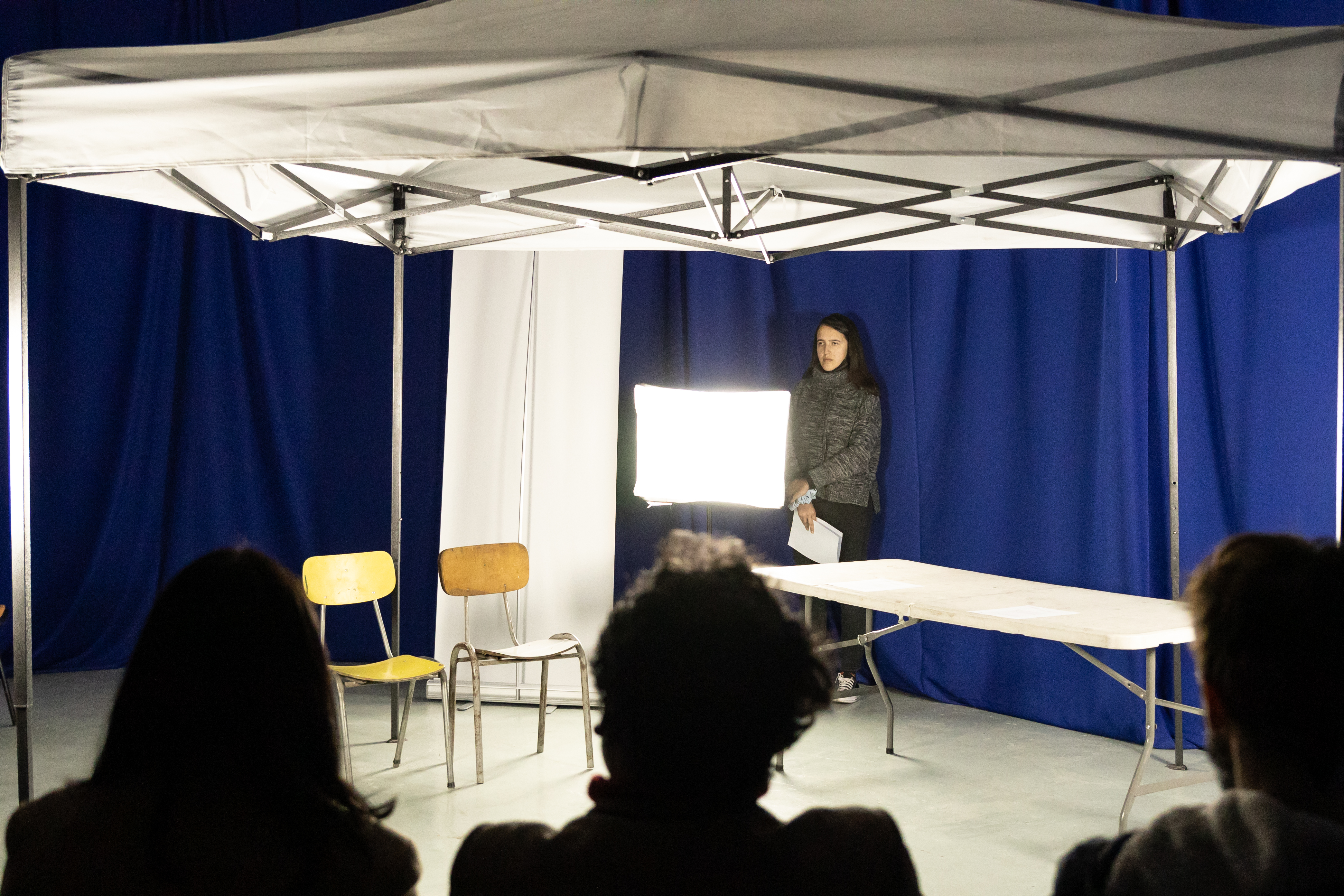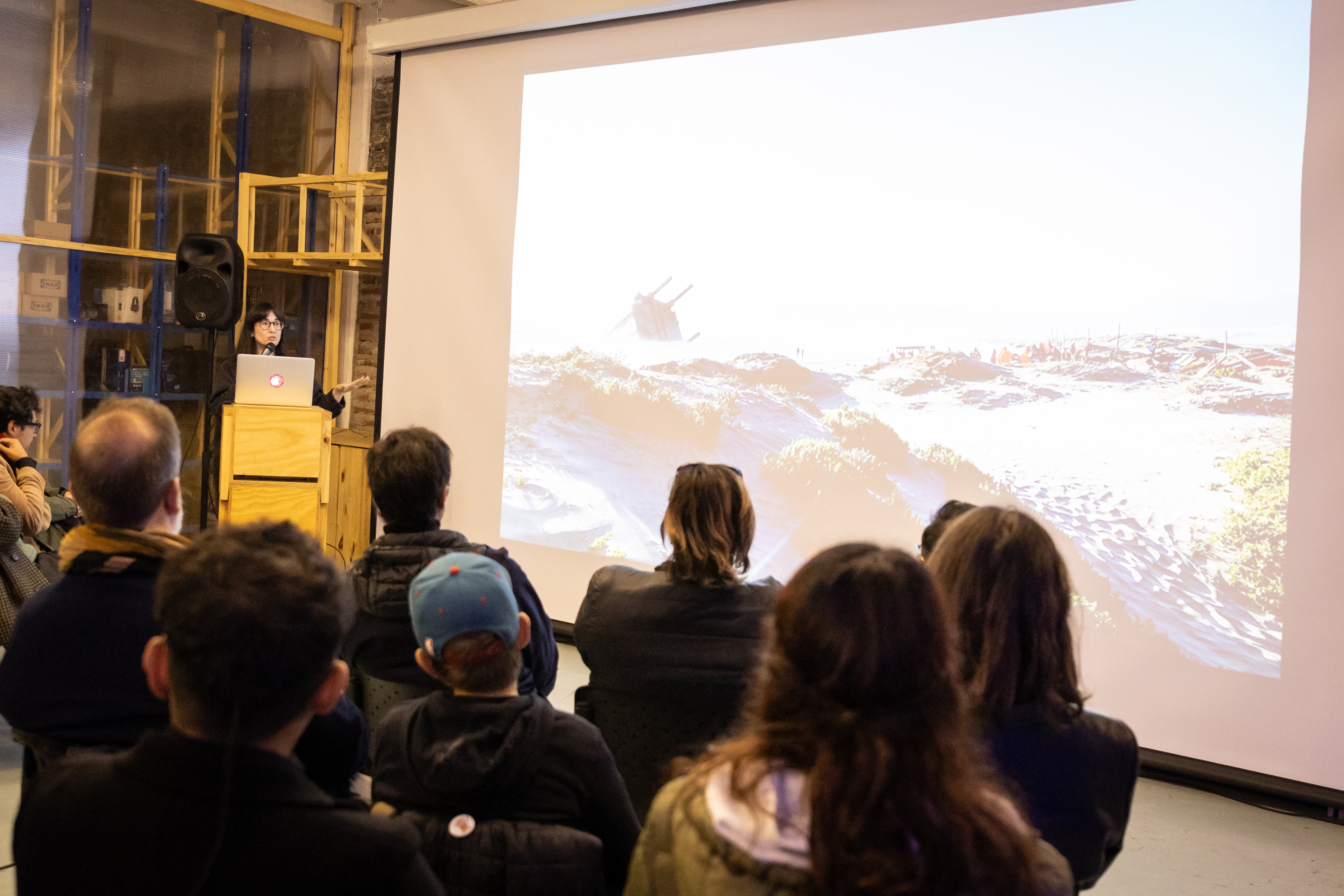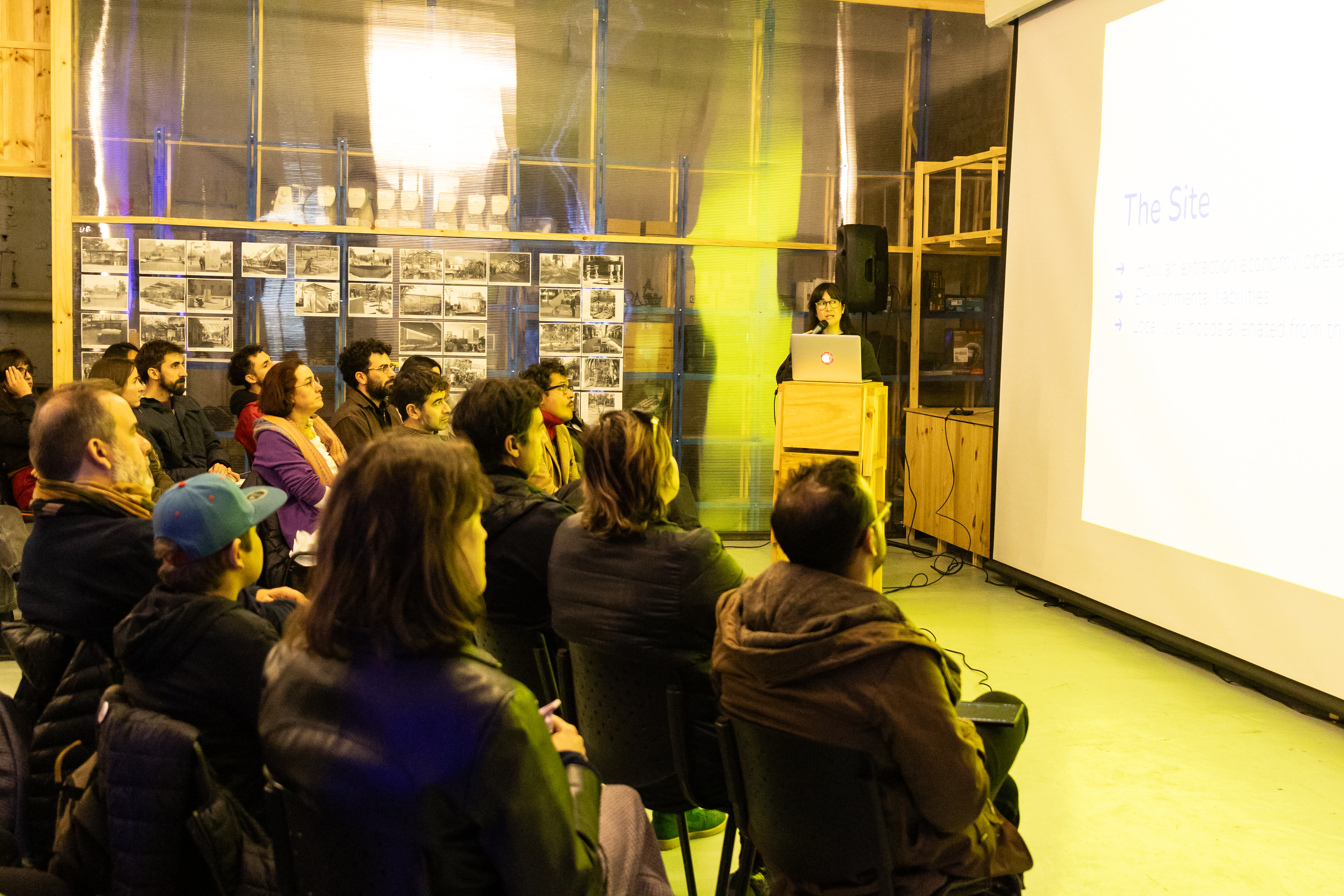UPGRADE PORTFOLIO
October 2023 - September 2025This portfolio comprises public-facing events that explore the idea of training, rehearsing, and performing SEIA archives, as well as filings submitted to the Chilean Environmental Impact Assessment System, with the aim of embedding concerns into the public record of the case study developed for the dissertation.
Reflective Intelligences_Chilean Pavilion at the 19th Venice Architecture Bienale
May 2025 - Nov 2025
Installation
Venice, Italy
Reflective Intelligences is Chile’s curatorial proposal for the 19th Venice Architecture Biennale, curated by Carlo Ratti under the theme “Intelligences: Collective, Natural, Artificial.”
The Pavilion of Chile invites visitors to reconsider intelligence not solely as a computational attribute, but as something also shaped through deliberation, resistance, and the entangled relations between natural, artificial, and communal forms of knowledge—all experienced through the act of “reflection.” To possess reflective intelligence is to cultivate critical thought from multiple embodied perspectives—to stand in someone else’s place. In Chile, this has often been enabled through roundtables.
The mesa de trabajo, or roundtable, is a rhetorical and institutional figure used by the Chilean government, referring both to a physical object and to an assembly of diverse actors convened to address pressing issues. In this case, the table becomes a site of debate around controversies stemming from national AI policy. Reflective Intelligences places the table at the heart of the pavilion. By mimicking the double meaning of “roundtable,” it also plays on the dual sense of “reflective”—as both the act of mirroring and an invitation to deep consideration.
At the center of the pavilion, a table projects a video essay that reflects off water—an element simultaneously reduced to a computational resource and central to community struggles around the environmental impacts of data infrastructures. Surrounding the table are 25 scale models that expose the often opaque, black-box nature of these architectures. Together, they present two pathways for engaging with the infrastructural challenges of AI futures: one through the design of assemblies for environmental deliberation and monitoring, and the other through a critical engagement by design disciplines with both the intended and unintended consequences of these infrastructures.
Reflective Intelligences seeks to amplify the voices of those excluded or stripped of agency over their territories due to the expansion of digital infrastructures—developments that have made Chile the country with the fastest internet speeds in the Americas and Europe. From non-human actors such as wetlands to community organizations, these voices grapple with participation in environmental processes that often lack mandatory public consultation. The stories shared around this table reveal a different narrative.
In response to the curator’s call for “One place, one solution,” Reflective Intelligences argues that solutions do not arise from technology alone, but from spaces of deliberation where collective, natural, and artificial intelligences intersect. The pavilion challenges AI-driven entrepreneurial discourse by foregrounding local struggles over the materiality of the cloud—struggles that resonate globally. From one place, one approach emerges: a blueprint for contestation in solidarity.
The activity was funded by the Chilean goverment via the Ministerio de las Culturas, las Artes y el Patrimonio
Pavilion website 🔗
SELECTED INTERNATIONAL (ENGLISH) MEDIA COVERAGE
Le Monde 🗞
El País 🗞
Domus 🗞
Archdaily 🗞
Designboom 🗞
Interni Magazine 🗞
L'Officiel 🗞
All images by Cristóbal Palma











SEIA Public Record interventions
March 2025
Comment submissions
Online
Between March 24 and 26 of this year, I uploaded five entries to the SEIA online platform, entries which were not only written comments but also accompanying annexed files. The platform has no restrictions on file type or attachment size per submission, but it does limit the number of files to one. This limitation can, however, be easily bypassed by including links within the written comment. The annexed files were research outputs developed during the first year of PhD research, with one predating that period. The outputs included a book chapter, an essay for a student-led journal, an essay published in a peer-reviewed journal, and an online recording from an event titled Landscape Ledgers / Rehearsing Environmental Publics, developed as part of a doctoral fellowship in May 2024. With each comment submission, a short paragraph addressed not only the project owner who must respond to each observation, but also the other 352 comment submitters, as all comments are made public by virtue of being filed, while at the same time embedding these materials in perpetuity into the mine`s EIA records. Even though not all public records qualify as archives, in Chile, under Decree Law 5200, all public organizations are legally obligated to transfer documentation to the National Archives. In 2012, the SEA (Sistema de Evaluación Ambiental, Environmental Evaluation Service) began transferring its first batch of digitized documents, thereby securing in perpetuity what Daston calls “third nature”: the findings of science selected to endure, preserved in baselines.
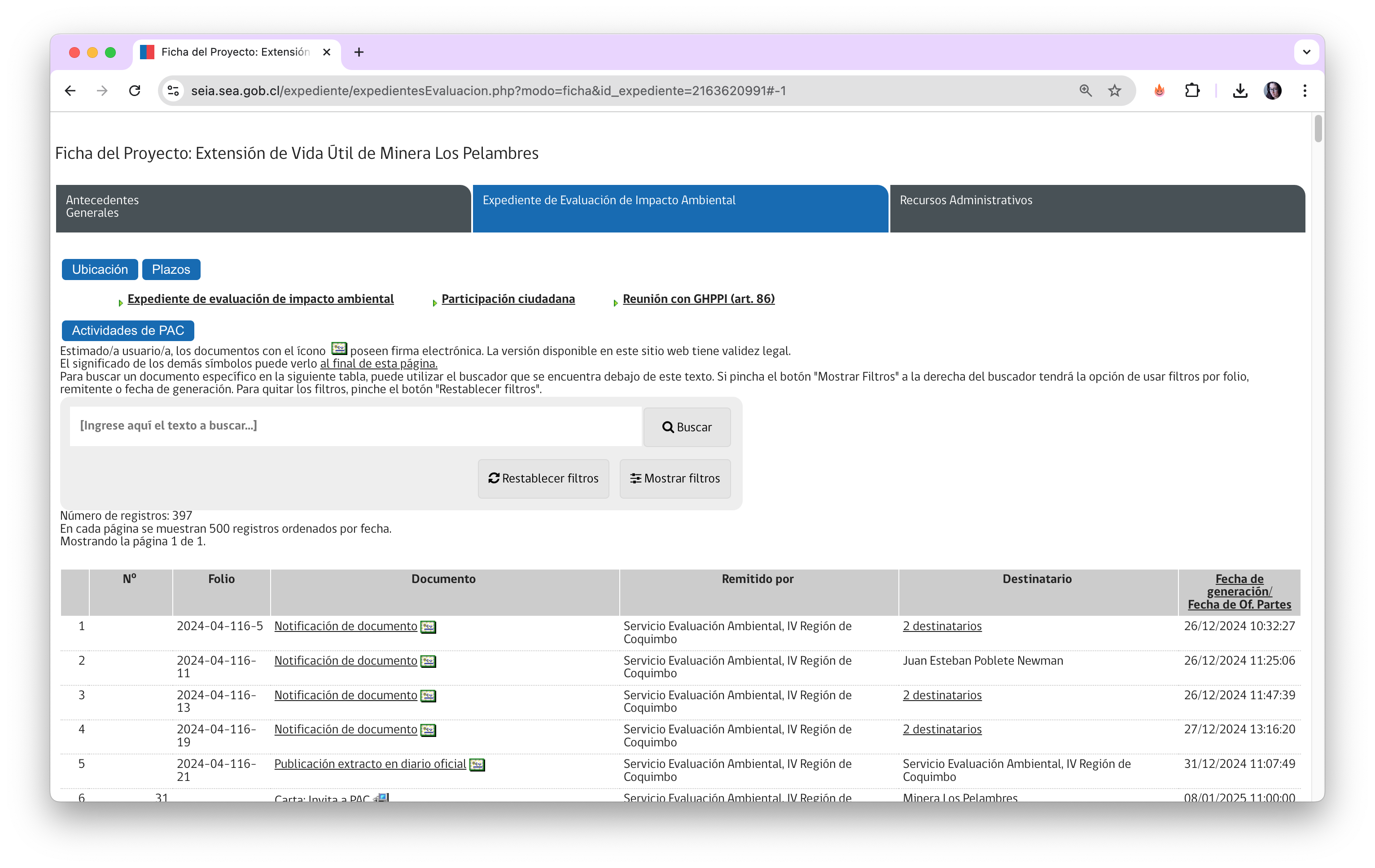





Rehearsing Environmental Publics
May 2024
Lecture / Performance
Santiago, Chile
Rehearsing Environmental Publics was a presentation and performance carried out as part of a doctoral residency at the Núcleo Lenguaje y Creación at the Faculty of Architecture, Animation, Design, and Construction at Universidad de Las Américas.
Both activities served as an opening of the ongoing doctoral research conducted at the Centre for Research Architecture at Goldsmiths, University of London. The research addresses the different visual regimes within Environmental Impact Assessments (EIA), seeking to foster the development of “environmental publics” through the citizen participation processes embedded in EIAs and carried out in areas of socio-environmental conflict.
Based on this material, the presentation included the staging of a citizen participation session, using as a basis the material conditions under which these are produced by mining companies. In this scene, a group of actors rehearsed a live reading of selected texts written by residents of conflict zones, originally submitted as part of the citizen participation processes in EIAs. These texts, written directly on digital comment submission platforms, are typically read only silently by those who process them for integration into the EIA reports.
The activity was funded by the Graduate School Grant at Goldsmiths
Recording 🔗
Núcleo Lenguaje y Creación website 💻
